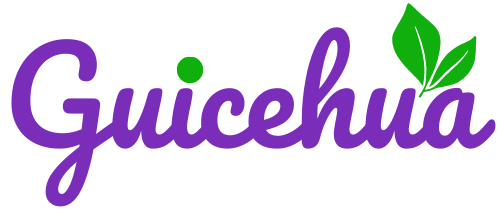Growing and developing as professionals is a crucial element of any career and plays an important role when you are a registered nurse (RN). Based on the state that you work in, continuing professional education may be required for license renewal, and is an activity that should be carried out frequently.
In the event that you’re already a nurse or planning to become one, it’s crucial to know how to obtain professional growth and how it will benefit you.
What Does Nursing Professional Development Mean
Sometimes abbreviated as NPD, nursing professional education is precisely what it says: a learning experience that is targeted at nurses.
“It’s about lifelong learning and striving to be the best nurse you can be,” said Dr. Stacey L. Rosenberg, DNP, RN, ACNSBC, CNE, the associate chief of nursing in Southern New Hampshire University (SNHU).
Professional development for nurses is a way nurses can improve their knowledge, skills, and capabilities, according to Rosenberg. It can take on different types. It could include both informal and formal opportunities, including:
- Participating in workshops, conferences, and seminars
- Participating in research
- The role of mentors for others
- Acquiring the necessary certifications
- Participating in online courses
In the field of professional nursing development, you may also encounter the phrase “continuing education,” or CE. The term “continuing education” is a reference to fulfilling the requirements for licensing or certification in accordance with Rosenberg and falls under the larger professional development framework.
In the state where you’re licensed, you could have to complete a certain number of “contact hours” to qualify for renewal of your license. Contact hours are earned through continuing education classes as well as other forms of professional development, according to Dr. Lyndsay Goss, DNP, RN, CNE, NPD-BC, who is the head of Continuing Professional Development in Nursing at SNHU.
How a Nurse Can Advance Professionally
Once you have a basic understanding of the terms used in the NPD procedure, you can think about where to begin. The good news is that there are plenty of opportunities.
What Does Nursing Professional Development Entail
The activities range from training on the job to gaining a new certificate, according to Goss. Training can be conducted in person or on the internet, in real-time or via a recording.
“Professional development can even be self-directed learning,” Goss declared. “Professional development is a lifelong learning experience that can be gained through many avenues.”
If you’re in the market for professional development that will earn the user contact hours, you need to think about the business that will provide the course, as per Goss.
SNHU Nursing is accredited by the American Nurses Credentialing Center (ANCC) as an organization that provides continuing professional education for nurses, which allows nurses to gain contact hours by taking advantage of its accredited courses.
For example, SNHU offers three digital badges to provide continuing education for nurses seeking to advance professionally, whether they an enrolled students in SNHU’s nursing program or not.
They comprise:
- Advanced Healthcare Leadership
- Healthcare Quality and Improvement
- Healthcare Preceptor
Furthermore, SNHU hosts two annual healthcare conferences: one of which is a Thinkers’ Conference and a Global Summit. Both conferences are free and open to the public.
Find out further regarding the continuing education credit for nurses, as well as how they function.
What Does a Nursing Professional Development Goal Look Like
The goals of professional development may differ between nurses. As an example, two goals Goss has set for herself and has achieved include becoming a Certified Nurse educator (CNE) as well as a certified professional for nursing professional development (NPD-BC). Beyond these certifications, she stated that the goal of professional development could include:
- Complete a quality improvement initiative
- Participating in a conference
- Make a publication in a professional journal.
What’s crucial when setting your goals is to make sure they’re smart, which means Specific, Measurable, Attainable, Relevant, Time-bound, and realistic.
A good illustration that comes from Rosenberg can be found here: “Obtain certification in oncology nursing within the next two years to enhance my expertise in cancer care and improve patient outcomes in this specialized area,” she explained. “This goal is specific, time-bound, and aligns with both personal interest and career advancement.”
Some other possibilities that are directly in line with your professional goals, as per Rosenberg The opportunities include:
- Participating in events that focus on leadership in nursing or new technology in the field of healthcare
- The continuing education classes focus on pharmacology that is advanced pharmacology or techniques for treating patients
To assist you in reaching your goals, develop a plan of professional development.
What is a Nurse Professional Development Plan
Time can pass quickly. A professional plan of development will aid you in staying on the right track.
“Each nurse’s professional development plan will be different depending on their current specialty and career aspirations,” Goss stated.
An excellent place to start, according to Rosenber, is to think about your career objectives over the long term.
“Identify the skills, knowledge, and certifications that will help you reach those goals, and then seek out opportunities that align with them,” she added. “Keep a balance between required continuing education and activities that genuinely interest you or will enhance your daily practice.”
It’s crucial to understand that your plan for professional development cannot be set in stone. Rosenberg suggests reviewing it regularly and making adjustments and changes when necessary.
The idea of seeking mentorship could be beneficial in the process of professional development, according to Goss.
5. Justifications for Nursing Professional Development
There are numerous advantages for nurses who frequently engage in developing their professional skills. Based on Rosenberg and Goss, the professional development aspect of nursing can benefit you in the following ways:
Keep Up with Licensure Renewal Criteria
To ensure that you’re still an RN, it is necessary to keep renewing your license regularly. Although requirements for renewal of licensure differ from state to state, most states have a minimum number of professional development hours.
It is essential to find accredited activities for nurses looking to achieve contact hours that meet the requirements of licensure. “Accredited programs are more likely to provide relevant, up-to-date information and are more likely to be accepted for meeting licensure or certification renewal requirements,” Rosenberg explained.
Make sure you check the State Board of Nursing to know how often you need to renew your nursing license in the state you reside in and what is involved during the renewal process.
Reach Professional Contentment
Participating in learning and growth opportunities can be satisfying both professionally and personally. According to Rosenberg, the growth of your career is not only a source of satisfaction in your job, but it will also increase your confidence.
It may also allow you to develop new interests that are related to the subject. For example, at SNHU, there are ongoing education opportunities to gain knowledge about populations that are underserved and the latest public health problems. These types of learning have the potential to expose you to different areas of interest in your job.
Protect Patient Safety
Since patients are at the core of nursing, it only makes sense that they be at the heart of professional development for nurses. According to a StatPearls Publishing article in the National Center for Biotechnology Information ( NCBI), NPD practitioners design their instructional materials with the intention of increasing the quality, quantity, and health outcomes for patients.
“Continuous learning ensures that nurses are up to date with the latest practices, which directly impacts patient safety and care quality,” Rosenberg explained. This is accomplished by placing an emphasis on the education of skills and performance requirements as per this NCBI article.
Continue to Be Relevant
With the pace of change, new technological advancements, and more influence on the future of healthcare, the field is being challenged to keep up. Nurses must be up to date with changes and developments.
“Nursing and healthcare are always evolving, so it stands to reason that nurses and health workers should evolve with it,” Goss declared.
It’s also a chance to improve your skills, Rosenberg said, and be a versatile nurse. In addition to skills such as compassionate observation and critical thinking NurseJournal listed self-development and resilience as the 10 most important soft competencies for nurses.
Develop Your Career
The process of professional development can help you get an advanced position in nursing if you opt to pursue a master’s qualification or certification. For example, the Master of Science in Nursing (MSN) in Executive Leadership could allow you to enter an executive position in healthcare, or a Family Nurse Practitioner (FNP) MSN could aid you in becoming an NP.
If you’re looking to become a nurse educator, you can also earn a Nurse Educator MSN. If you already hold an MSN qualification, then you can go for a post-master’s degree in nursing education.
“SNHU’s post-master’s certificate in nursing education prepares MSN-prepared nurses to become educators in academic, clinical, or professional development settings,” Goss explained. “Graduates of this post-master’s certificate program will meet the educational requirements for the Certified Nurse Educator (CNE) exam offered by the National League for Nursing (NLN).”





